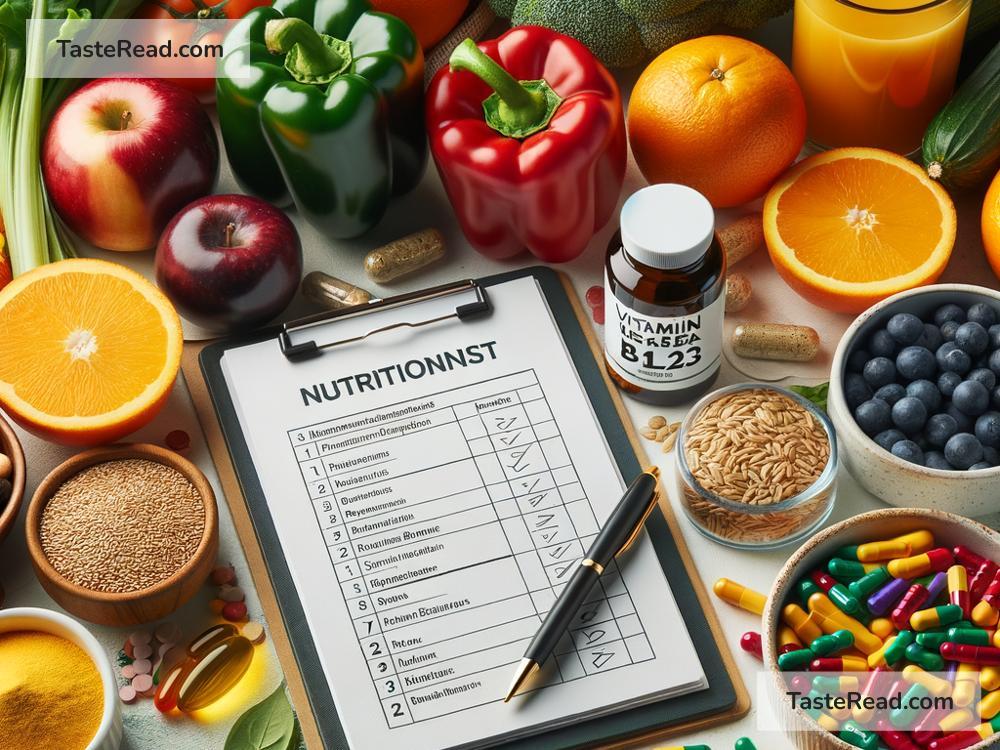The Role of Vitamin B12 in Metabolic Health
When it comes to staying healthy and energized, few nutrients are as important as vitamin B12. This powerhouse vitamin plays a critical role in helping your body function at its best, especially when it comes to metabolic health. But what does vitamin B12 really do, and why is it so important? Let’s break it down in simple terms.
What is Vitamin B12?
Vitamin B12, also known as cobalamin, is one of the eight B vitamins that your body needs to stay healthy. Unlike some other vitamins, your body cannot make B12 on its own, so you must get it from the food you eat or supplements. B12 is mainly found in animal-based foods like meat, fish, eggs, and dairy products. Vegetarians and vegans often need to take supplements or eat fortified foods to ensure they get enough.
Why Does Your Body Need Vitamin B12?
Vitamin B12 plays a key role in many essential processes in your body. One of its most important jobs is supporting your metabolism. Metabolism is what helps your body turn the food you eat into energy. Every cell in your body needs energy to work properly, and vitamin B12 helps make that happen.
Here are some of the key functions of vitamin B12:
-
Energy Production: Vitamin B12 helps your cells turn fats, proteins, and carbohydrates into energy. Without enough B12, you might feel tired and sluggish because your body isn’t producing energy efficiently.
-
Red Blood Cell Formation: B12 helps your body produce healthy red blood cells, which carry oxygen to your organs and tissues. When you don’t have enough B12, you can develop a condition called anemia, which makes you feel weak and fatigued.
-
Brain and Nervous System Health: B12 is essential for maintaining a healthy brain and nervous system. It helps produce and regulate chemicals in your body that impact mood, memory, and focus.
-
DNA Production: Vitamin B12 is also involved in making DNA, the genetic material in your cells. This process is crucial for repairing and creating new cells in your body.
Vitamin B12 and Metabolic Health
Metabolic health involves a wide range of processes that keep your body running smoothly. Good metabolic health means your body efficiently breaks down and uses nutrients from food, maintains a healthy balance of sugars in your blood, and keeps your energy levels steady.
Here’s how vitamin B12 connects to metabolic health:
-
Energy Boosting: Vitamin B12 is like the fuel your body needs to turn food into energy. Without enough B12, your body’s metabolism slows down, leaving you feeling tired and unable to perform daily tasks easily.
-
Preventing Anemia: When your metabolism isn’t working well, it may struggle to produce enough red blood cells. Low red blood cell levels caused by a B12 deficiency can prevent oxygen from traveling efficiently through your body, leading to symptoms like fatigue and shortness of breath.
-
Maintaining Blood Sugar Levels: Research suggests that vitamin B12 may play a role in keeping blood sugar levels stable by supporting processes that regulate carbohydrate metabolism. This is especially important for people at risk of developing diabetes or other metabolic syndromes.
-
Supporting Weight Management: A healthy metabolism helps your body burn calories efficiently. Although vitamin B12 won’t directly help you lose weight, it ensures your metabolic system is functioning properly, which indirectly impacts your energy levels and overall health.
Signs You May Be Lacking Vitamin B12
Vitamin B12 deficiency is surprisingly common, especially in older adults and people who don’t eat enough animal-based products. Here are some signs you might be low on B12:
- Constant fatigue or weakness
- Memory problems or difficulty concentrating
- Tingling or numbness in your hands and feet
- Pale or yellowish skin
- Feeling dizzy or lightheaded
- Mood changes, such as feeling sad or irritable
If you notice any of these symptoms, it’s a good idea to talk to your doctor and get your B12 levels checked.
How to Get Enough Vitamin B12
The best way to get vitamin B12 is through a balanced diet. Foods like beef, fish (especially salmon and tuna), eggs, and dairy products are rich in B12. If you don’t eat these foods, you can try fortified cereals, plant-based milk, or supplements.
For people with absorption issues, such as those with digestive disorders or older adults, doctors may recommend B12 shots or prescription-strength supplements. These options ensure your body gets enough of this essential nutrient.
Final Thoughts
Vitamin B12 is a vital nutrient for maintaining metabolic health and keeping your body energized and strong. It helps your cells produce energy, supports your brain and nervous system, and even plays a role in weight management. Without enough B12, your metabolism can slow down, leaving you feeling tired and unwell.
By eating a variety of nutritious foods or taking supplements if needed, you can make sure you’re getting enough vitamin B12 to stay healthy. If you suspect a deficiency, don’t hesitate to consult a doctor. Taking care of your body starts with giving it the nutrients it needs—vitamin B12 is high on that list!


